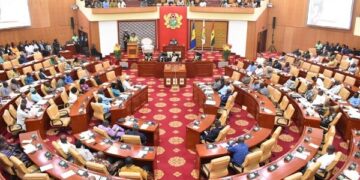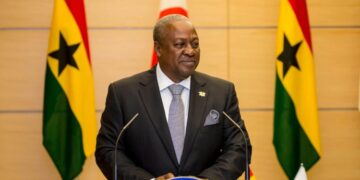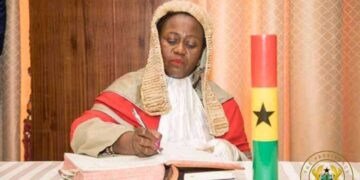The Parliamentary Select Committee on Independent Constitutional Bodies has initiated discussions with five Constitutional bodies to explore financing mechanisms that ensure their independence and sustainability.
The five Constitutional bodies were the Commission for Human Rights and Administrative Justice (CHRAJ), the Electoral Commission (EC), the National Media Commission (NMC), the National Commission for Civic Education (NCCE), and the Audit Service.
This discussion ensued during a two-day familiarization visit to these five institutions under the Committee’s watch to assess their operational challenges and identify areas in which Parliament could offer support.
The working visit took place in the Greater Accra Region between Monday, May 12 and Tuesday, May 13.
In his remarks, Mr Mahama Ayariga, the Chairman of the Committee highlighted the importance of adapting to new challenges in Ghana’s evolving democracy.
“We need to find ways to guarantee funding for these institutions, without putting them at the mercy of political actors.
“Our doors are open for collaboration, and we want to work together to come up with ideas that Parliament can use to protect the structure of these institutions,” he said.
According to Mr Ayariga, also the Majority Leader, protecting the constitutional bodies from political interference and ensuring their independent mandate could not be compromised.
As a result, he called for the establishment of a sustainable funding mechanism for the constitutional bodies.
‘Strengthening the National Media Commission’s regulatory framework and promoting collaboration between constitutional bodies and Parliament will ensure their mandate is upheld,” he emphasized.
Madam Kathleen Addy, the Chairperson of NCCE, lamented the poor state of the Commission’s offices, describing them as “infrastructurally very dangerous.”
“The NCCE’s head office and regional offices are in disrepair, hindering staff’s ability to work effectively,” she told the Committee.
She stressed that the Commission was facing significant challenges, including inadequate funding and dilapidated infrastructure and needed adequate attention to perform its Constitutional mandate.
Madam Addy told the Committee that NCCE relied heavily on donor support, which was dwindling and called for a stable funding mechanism to ensure independence and sustainability.
“We can do the work, but we cannot fund projects, so institutions need to fund projects we go into with them,” Madam Addy emphasized, highlighting the NCCE’s resource constraints.
Mr Johnson Akuamoah Asiedu, the Auditor General, pledged to maintain a continuous working relationship with Parliament.
GNA




















































































